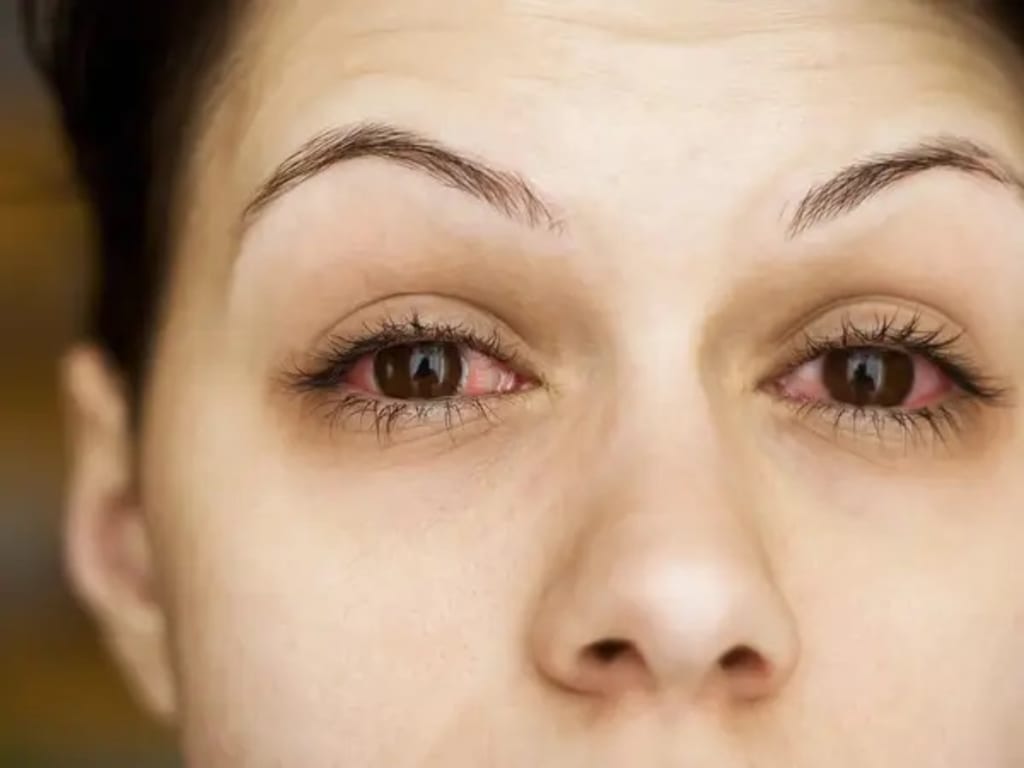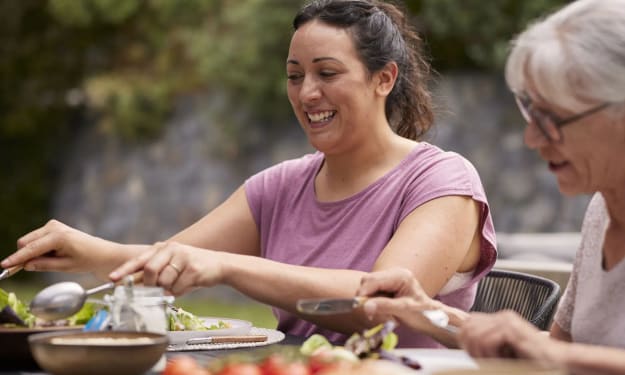Here Are Seven Suggestions That Will Help You Reduce Eye Pressure Instantly and Effectively
Warning signals that indicate a major issue with the eyes

IOP, or eye pressure, is essential to eye health. Untreated glaucoma may cause irreversible visual loss due to high eye pressure.
This page discusses eye pressure, its causes, and ways to lower and control it for best ocular health.
What's Normal Eye Pressure?
Adult ocular pressure is usually 10–21 mm Hg. This measurement may vary according to age, individual variance, and measuring method.
While this range is typical for most people, others may have slightly higher or lower eye pressures without glaucoma or other eye disorders.
Intraocular Pressure
Intraocular pressure is eye fluid pressure. It is essential for eye shape and optic nerve and retina function. However, severe intraocular pressure may destroy these structures, causing vision loss. This illness is usually linked to glaucoma, which damages the optic nerve.
Causes of High Eye Pressure
Several things raise ocular pressure:
● Genetics: Family history of glaucoma raises eye pressure risk.
- The chance of acquiring high ocular pressure and glaucoma increases with age.
- Medical illnesses such as diabetes, high blood pressure, and cardiovascular diseases may increase ocular pressure.
- Individuals of African, Hispanic, and Asian heritage have an increased risk of glaucoma.
● Eye Anatomy: Thinner central corneas or narrow-angles might increase eye pressure.
Seven Suggestions to Help Lower Your Eye Pressure
1. A Diet That Is Well-Rounded: Consuming a diet that is rich in antioxidants, vitamins C and E, omega-3 fatty acids, and zinc will help lower eye pressure and maintain healthy eyes simultaneously. Eat meals that are high in nutrients, such as fish, nuts, citrus fruits, and leafy greens whenever possible.
2. Physical Activity: Participating in regular physical activity helps to increase blood circulation, which in turn improves the ability to control ocular pressure. Benefits may be gained by engaging in activities such as brisk walking, swimming, and yoga.
3. Maintaining a sufficient level of hydration is essential for maintaining general eye health and for assisting in the regulation of ocular pressure. It is important to drink enough water throughout the day and to eat foods that are high in water content, such as watermelon and cucumbers.
4. Managing Stress: Prolonged exposure to stress might be a factor in the development of high ocular pressure. Reducing stress and improving eye health may be accomplished via the use of relaxation methods such as deep breathing, meditation, and mindfulness activities.
5. Management of Screen Time: Spending an excessive amount of time in front of a screen may cause an increase in eye pressure and strain on your eyes. Keep in mind the 20-20-20 rule, which states that every 20 minutes of screen use, you should take a 20-second break to gaze at something that is 20 feet away.
6. Getting Quality Sleep: If you want to reduce your ocular pressure, you should make getting enough sleep a priority. Establishing a regular sleep pattern and creating a pleasant sleeping environment are also important steps.
7.It is vital to have routine eye examinations in order to identify early indicators of high eye pressure or other eye disorders. Therefore, it is important to have regular eye exams. The ocular pressure of a person may be measured by professionals, who can also provide advice on how to properly manage it.

Quick Relief: A Step-by-Step Guide to Instantly Lowering Eye Pressure
1. Make A Consistent Blink
Simply blinking often is one of the most straightforward methods for relieving strain on the eyes. Through the process of blinking, tear film is distributed throughout the surface of the eye, which serves to provide moisture and reduce dryness. There is also the possibility that blinking on purpose might assist relax your eye muscles and bring instant comfort.
2. Using palms
Palming is a method for relaxation that includes covering your closed eyelids with your hands and applying a little pressure to induce a state of calm. Through the use of this technique, light and other external stimuli may be blocked out, resulting in increased relaxation and less strain on the eyes. Put your hands together over your closed eyes, find a comfortable position to sit in, and take a few deep breaths. Maintain this posture for a minute or two at a time.
3. Treating the Eyes
Blood circulation may be improved and ocular pressure can be alleviated with the aid of therapeutic eye massages. By applying gentle pressure in a circular motion around your closed eyelids with your fingers, you may get the desired effect. Move outward from the inner corners of your eyes, beginning with the inner corners. Exerting too much force should be avoided at all costs.
Compress that is warm
The use of a warm compress may assist in the relaxation of ocular muscles and the promotion of improved circulation. A clean cloth should be dipped in warm water, the excess water should be wrung out, and then the cloth should be placed over your closed eyes for a few minutes. Because of the warmth, stress may be alleviated, and ocular strain can be reduced.
5. a cold compress
In addition, the use of a cold compress may also be of assistance in alleviating pain by lowering inflammation and narrowing blood vessels. Make use of a cold pack or a clean towel that the ice cubes are wrapped around. After your eyes have been closed, gently place it over them for a minute or two.
6. Changing One's Focus
Engage in activities that involve changing your concentration in order to alleviate eye strain and discomfort. First, choose an item that is close by and concentrate on it for a few seconds. After that, move your attention to an object that is farther away. Performing this method many times will assist in relaxing the muscles in your eyes.
A brief summary
It is essential to keep your eye pressure at a healthy level in order to protect your eyesight and maintain your general ocular health. You are able to greatly lower the chance of developing raised eye pressure and related eye disorders such as glaucoma by adopting a balanced lifestyle that includes a diet that is rich in nutrients, frequent exercise, stress management, enough hydration, and quality sleep. It is important to remember to make getting frequent eye exams a priority in order to identify any potential problems at an early stage and to guarantee that your treasured vision will last as long as possible.
About the Creator
Jacob Damian
Whether you're looking to learn something new, explore different perspectives, or simply satisfy your curiosity, I can offer you insights and perspectives that you may not have considered before. With my ability to process and analyse.






Comments
There are no comments for this story
Be the first to respond and start the conversation.